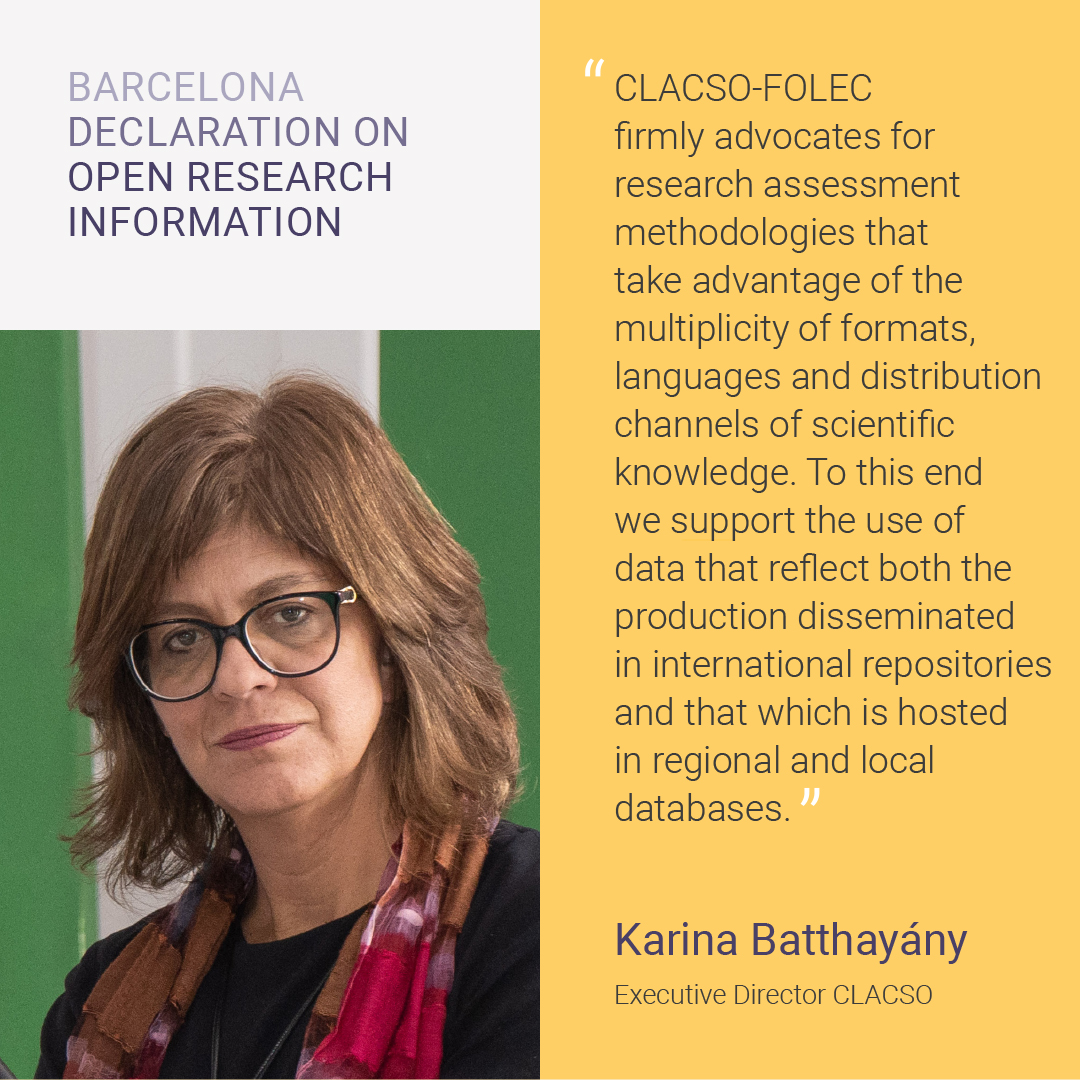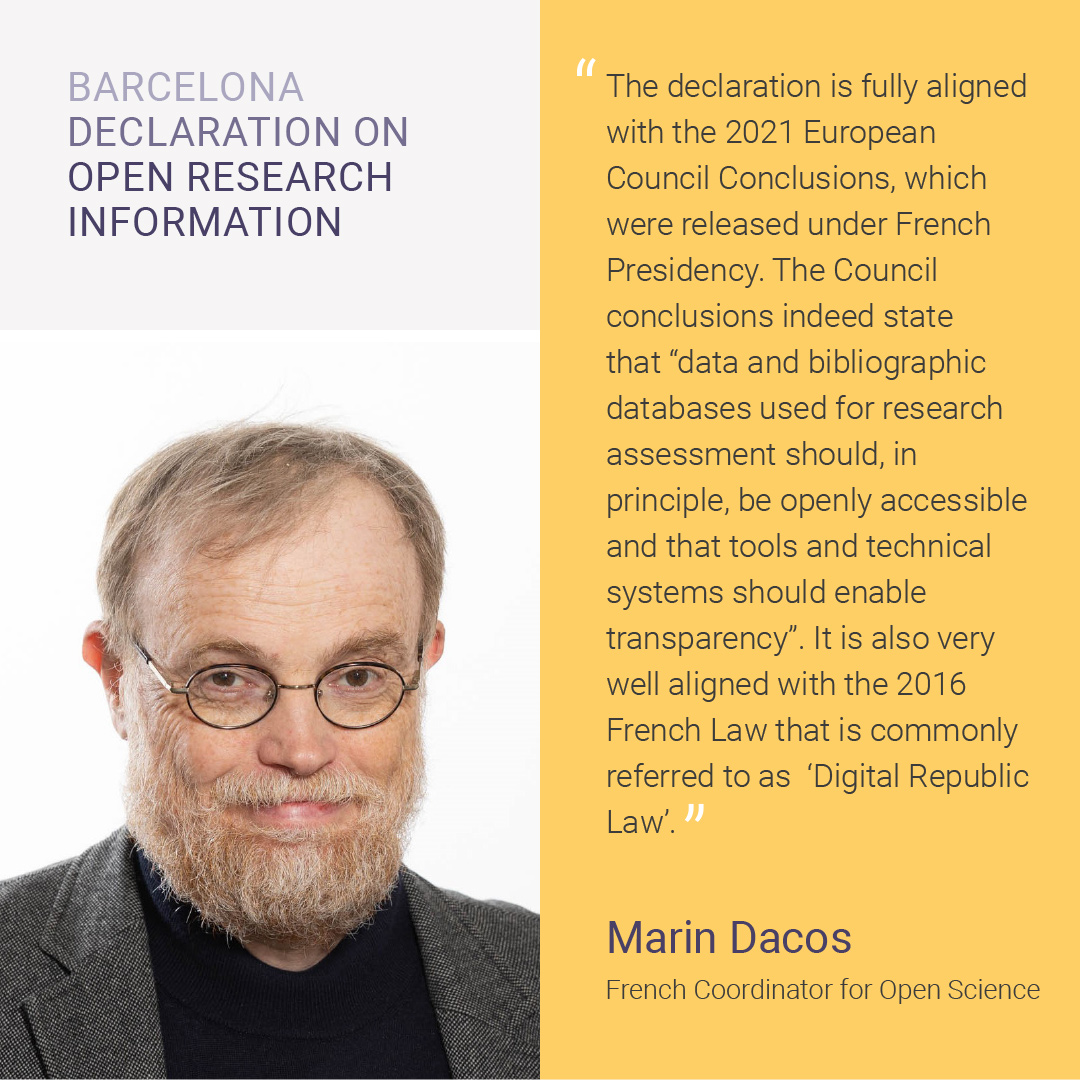Background and context
Closed research information leads to black-box decision making
Too often, decision making in science is based on closed research information. Information is locked inside proprietary infrastructures run by for-profit providers that impose severe restrictions on the use and reuse of the information. Errors, gaps, and biases in closed research information are difficult to expose and even more difficult to fix. Indicators and analytics derived from this information lack transparency and reproducibility. Decisions about the careers of researchers, about the future of research organizations, and ultimately about the way science serves the whole of humanity, depend on these black-box indicators and analytics. Without open research information, it is difficult, if not impossible, to scrutinize these indicators and analytics and to have an informed debate about their strengths and weaknesses. Basic standards of accountability cannot be met, and academic sovereignty) is at risk.
There are many closed research information infrastructures. Well-known examples are the Web of Science and Scopus databases, which play an important role in research assessment and resource allocation in many countries. These databases provide metadata for scientific publications (e.g., title, abstract, journal, authors, author affiliations, funders, etc.), but they impose severe restrictions on the use of this metadata and make the metadata available only to organizations that pay hefty subscription fees. Indicators and analytics based on these databases (e.g., publication and citation statistics, journal impact factors, university rankings, etc.) lack transparency and reproducibility.

Transparent high-quality decision making requires open research information
At a time when decision making in science is increasingly guided by indicators and analytics, addressing the problems of closed research information must be a top priority. Decisions should be informed by open research information: information that is free to access, without restrictions on how it can be used and reused. To enable linking of information from different sources, open research information should make use of persistent identifiers such as DOIs (Digital Object Identifiers), ORCIDs (Open Researcher and Contributor IDs), and ROR (Research Organization Registry) IDs to reference research outputs, researchers, research organizations, and other entities. Infrastructures for open research information should be governed by relevant stakeholders in the academic community.
Openness of research information ensures that all stakeholders have full access to information that is of relevance to them. This is vital for high-quality decision making in science. It also enables information from different sources to be linked and integrated, so that decision making can take full advantage of all available information and can be based on a diversity of perspectives and an inclusive understanding of the issues at stake. In addition, when researchers or research organizations perform additional data curation, the enriched information resulting from this can again be shared openly, enabling everyone to benefit from it. In a research assessment context, openness of research information guarantees that not only those performing an assessment but also those being assessed have access to all ‘evidence’ considered in the assessment, offering the transparency and accountability that are crucial to foster responsible assessment practices.

Support for open research information is rapidly increasing
The importance of openness of research information is widely recognized, for instance by the research assessment reform movement. The San Francisco Declaration on Research Assessment (DORA), supported by about 3000 organizations and over 20,000 individuals globally, calls on publishers to “remove all reuse limitations on reference lists in research articles and make them available under the Creative Commons Public Domain Dedication”. The Leiden Manifesto for research metrics advises that researchers who are being evaluated should always be able “to verify data and analysis”. The EU Council has adopted conclusions on research assessment and implementation of open science stating “that data and bibliographic databases used for research assessment should, in principle, be openly accessible and that tools and technical systems should enable transparency”. The more than 600 organizations that have joined the Coalition for Advancing Research Assessment (CoARA) have signed an agreement that emphasizes the need to ensure “independence and transparency of the data, infrastructure and criteria necessary for research assessment and for determining research impacts”. A large number of organizations and individuals in Latin America and the Caribbean have signed a declaration highlighting the importance of “initiatives and pronouncements against commercial barriers that limit access and participation in relation to scientific information”. The declaration stresses that research assessment should use “databases which reflect both the production disseminated in international repositories as well as that which is included in regional and local databases”.
Going beyond research assessment, SPARC (Scholarly Publishing and Academic Resources Coalition) warns that “complex infrastructure that is critical to conducting the end-to-end business of the university” is increasingly owned by companies that “can invisibly and strategically influence, and perhaps exert control, over key university decisions”. In its roadmap for action, SPARC advises research organizations to respond by identifying “a structured set of principles that represent a foundation and a compass for action” and by operating in more coordinated and aligned ways.
In line with this recommendation, the academic community in the Netherlands has developed guiding principles for open research information. These principles aim to “open up research metadata and data analytics”, which is essential “to cope with the increasing commercial development across the entire research life cycle without transparency or clarity on whether this supports the interests of the research community”.
Openness of research information, and specifically of publication metadata, has also been promoted by the Initiative for Open Citations (I4OC) and the Initiative for Open Abstracts (I4OA) as well as the Metadata 20/20 initiative. Likewise, the FAIR (Findability, Accessibility, Interoperability, and Reusability) principles have played a crucial role in advancing the availability of open metadata for research data. In its Recommendation on Open Science, UNESCO highlights the importance of “open bibliometrics and scientometrics systems for assessing and analysing scientific domains”. A growing number of infrastructures for open research information have also adopted the Principles of Open Scholarly Infrastructure.
Supported by the above developments, research information is increasingly made openly available. A number of open research information infrastructures for instance offer alternatives to closed databases. In addition to infrastructures provided by organizations such as Crossref, DataCite, and ORCID, this also includes ‘aggregator’ infrastructures such as OpenAlex, OpenCitations, and OpenAIRE, as well as discipline-specific infrastructures such as PubMed and Europe PMC, and local and national infrastructures such as La Referencia, SciELO, and Redalyc.
We are getting close to a tipping point in the transition from closed to open research information. But to reach this tipping point, more concerted action is needed. We therefore call on all organizations that carry out, fund, and evaluate research to support the transition to open research information and to sign the Barcelona Declaration on Open Research Information.